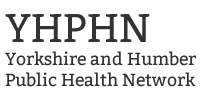Webinar: Is Food Insecurity a Public Health Issue? - 29 July 20
The Covid-19 outbreak has highlighted many aspects of the pervasive health inequalities in our society. One aspect of this is the growing awareness of food insecurity and the increasing number of households that experience it. In May 2020, there were nearly 5 million people in the UK experiencing food insecurity, including 1.7 million children; this represents a 250% increase over levels seen before the Covid-19 outbreak. This issue is clearly important in its own right; no one wants to imagine people who go to sleep worried they won’t have enough food to eat tomorrow. However, is this the full picture? Are there other health or childhood development or educational attainment outcomes associated with food insecurity? And if so, how might these affect individuals across the life course?
This one-hour webinar will examine food insecurity in the UK, what it means, how it is measured, who in our society is currently living with it, and what impact Covid-19 outbreak has had. The webinar will then give a summary of evidence on a range of health and wellbeing outcomes associated with food insecurity. What do we know about how food insecurity affects the mental health of an individual? What physical health outcomes are associated with food insecurity? Is a child’s development or success in school affected by episodes of food insecurity within their household? Finally, the webinar will pose the question – if food insecurity is a public health issue, then how should it be addressed?
A recording of the webinar provided on the 29th July 2020 can be found on the link below
